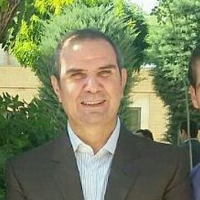The Status of Women in Endowments of Gonabad during the Qajar and Pahlavi Eras
The study aims to examine the contribution of women to the endowments of Gonabad during the Qajar and Pahlavi periods, to describe the characteristics and purposes of these endowments during these two eras, to explain the influence of feminine tendencies in determining the type and use of endowments, and to understand how female endowment caretakers were selected in Gonabad.
Method and Research Design:
This research adopts a descriptive-analytical approach, based on the content of endowment documents available at the Gonabad Endowments Office, as well as information from certain books, to analyze the position of women in the endowments of Gonabad and related issues concerning their endowments.
Women in Gonabad contributed to only 17% of the endowments during the Qajar and Pahlavi periods. The majority of women’s endowments consist of water and agricultural land; however, sometimes mulberry and jujube trees were also endowed. Most female benefactors were from rural areas, and, influenced by the uprising of Imam Hussain (a), they devoted most of the income from their endowments to Muharram mourning ceremonies. It can almost be said that Gonabadi female benefactors did not consider their feminine tendencies in determining the purposes of their endowments and the selection of their caretakers.
-
Position and Importance of Versified Histories of Safavid dynasty and Description of Their Historiographical Features
Javad Rashki Aliabad, *
Iranian Studies, -
Reflection of the epic concepts of Ferdowsi's Shahnameh in the portrayal of the power of the Mongols and Iranians in the Changizi's Shahnameh
Mohsen Parvish *,
Journal of Historical Perspective & Historiography, -
How and Why Epidemic Diseases Spread in Yazd from Timurid Era to the End of Safavid Era
Safa Zare Sangederazi, *
History of Medicin Journal, -
The Change in the Position of Ferdowsi and Nezami in Historical Shahnamehs (from the beginning of the Mongol era to the end of the Safavid era)
, Javad Rashki Aliabad *
Journal of Epic Knowledge and Wisdom,




